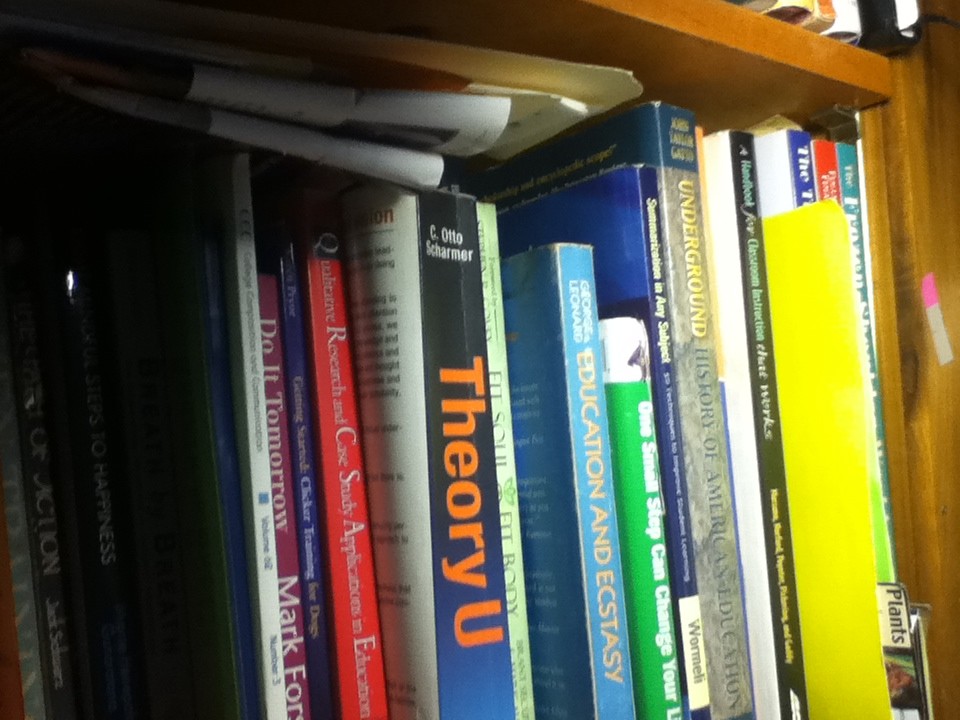Friday Links of Note
-
Ten Things You're Not Allowed to Say at Davos - Umair Haque - Harvard Business Review
I think many of the bullet points that Haque applies to Davos are applicable to all the conferences that educators occupy themselves with. I especially think the one about 'insiders rarely topple the status quo' is dead on. If you have time to go to these self-congratulatory fetes, then you are probably part of the powers that be. I could change my mind on this.
- Talk is cheap (and the more talk there is, the cheaper it gets). Corporations booking record profits as cities, states, and countries go broke have little (read: zero) incentive to actually do much get people, communities, and society out of this mess. The most powerful and influential folks at Davos — the titans of the global economy — probably won't do anything to heal the world, for the simple reason that because, as things stand, they "profit" most from its suffering. Want fries with that unsafe drinking water, bottom billion?
- You can't solve a problem on the level it was created (as Einstein's reputed to have said). This great crisis is in our economy — and so it might be of our society, culture, and polity.
- Insiders rarely topple the status quo.
- Moral vacuums tend to empower the amoral. Self-explanatory: take a look at these accounts of bankers vigorously defending what at this point my pet hamster knows is basically indefensible. It's like a self-parody — except it's not. Economists aren't exactly renowned for having a moral compass, yet without one, it's impossible to take on the fundamentally ethical challenge of rebooting prosperity.
- You need a whole brain to be a human. 21st century intelligence is not just analytical — it's ethical, emotional, and creative.
-
-
Addictive UX: Why Pinterest Is So Dang Amazing | Design Shack
Why we love Pinterest. And I do love it. I am looking for a spinach recipe right now from there. I am planning on demonstrating to my students what a Google 20% project might consist of for our Intro to College Writing Class next week. This article will be my framework for that.
-
Best Education Books of 2011 - The Huffington Post
Stager is an interesting character/curmudgeon and this is a worthy short list. No nonsense. Real teachers and real learning. Any one of these books could set a match to the tinder that is K-12 public and private education in this country.
- This article does more than suggest that you have an alternative to a CV or a resume, it also suggests that you live a completely different professional life, one dominated by demonstrable 'doing'. This means that project-based constructivist-connectivist learning will have to take the lead from K-20 and beyond.
-
With Udacity, Former Stanford Professor Goes All-In on Online Learning - Education - GOOD
There is a different mode of learning afoot. It is what Howard Rheingold calls peeragogy. Combine participatory, peer-based learning with super-large online course taught by real practitioners (Udacity) and you will begin to see the glimmerings of a new type of learning that is both formal and informal. It is a new way -
Audiobooks.com lets you fill your ears for $25 per month | VentureBeat
-
A Way To Think About Online Courses (By Apple, For Example) | Easily Distracted
Etextbooks are rising in the edu-zeitgeist. Steve Jobs' last legacy was a desire to totally disrupt the textbook market with electronic texts. This article looks beyond the hype of Apple's recent media blitz, but more importantly points to the possibility that etextbooks might not be recognizeable as textbooks at all. Etextbooks might mark the end of the idea of textbooks.

No comments:
Post a Comment